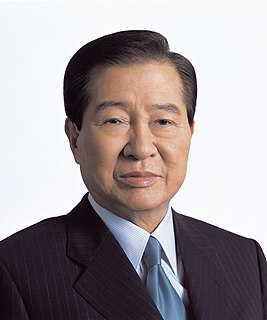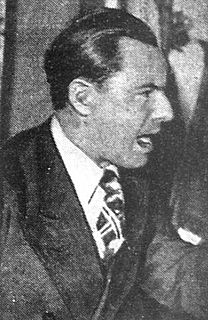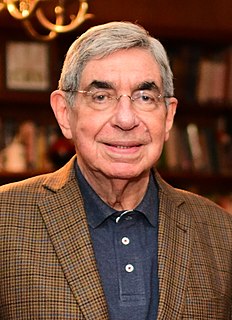A Quote by Eric Hobsbawm
It is one of the ironies of this strange century that the most lasting results of the October revolution, whose object was the global overthrow of capitalism, was to save its antagonist, both in war and in peace - that is to say, by providing it with the incentive, fear, to reform itself after the Second World War, and, by establishing the popularity of economic planning, furnishing it with some of the procedures for its reform
Quote Topics
Related Quotes
When you say that after World War I there was a pandemic that killed more people than the war itself, most will say: "Wait, are you kidding? I know World War I, but there was no World War 1.5, was there?" But people were traveling around after the war, and that meant the force of infection was much higher. And the problem is that the rate of travel back then was dramatically less than what we have nowadays.
The twentieth century had dispensed with the formal declaration of war and introduced the fifth column, sabotage, cold war, and war by proxy, but that was only the begining. Summit meetings for disarmament pursued mutual understanding and a balance of power but were also held to learn the strengths and weaknesses of the enemy. The world of the war-or-peace alternative became a world in which war was peace and peace war.
The other thing that really I regretted not being able to do was to push effectively for the reform of the Security Council. Because the world was changing, and is changing very fast, and I felt the UN was holding on to old arrangements. Most governments felt that it has such a narrow power base, based on the results of the second world war.
It is my belief that whereas the twentieth century has been a century of war and untold suffering, the twenty-first century should be one of peace and dialogue. As the continued advances in information technology make our world a truly global village, I believe there will come a time when war and armed conflict will be considered an outdated and obsolete method of settling differences among nations and communities.
To suggest that war can prevent war is a base play on words and a despicable form of warmongering. The objective of any who sincerely believe in peace clearly must be to exhaust every honorable recourse in the effort to save the peace. The world has had ample evidence that war begets only conditions that beget further war.
It is not to save capitalism that we fight in Russia … It is for a revolution of our own. … If Europe were to become once more the Europe of bankers, of fat corrupt bourgeoisies we should prefer Communism to win and destroy everything. We would rather have it all blow up than see this rottenness resplendent. Europe fights in Russia because it [i.e., Fascist Europe] is Socialist. what interests us most in the war is the revolution to follow The war cannot end without the triumph of Socialist revolution.
The best way to perpetuate poverty is spending on arms, and poverty itself is a form of violence. The wealthy industrialized countries have been too slow to recognize this. I hope that in this new century and new millennium, the world will learn that if you want peace, you must prepare for peace, plan for peace, work for it, and comply with its dictates. Lasting peace will never be achieved with the instruments of war.
In the middle of the nineteenth century, the United States embarked on a new relationship with death, entering into a civil war that proved bloodier than any other conflict in American history, a war that would presage the slaughter of World War I's Western Front and the global carnage of the twentieth century.
It seems to me an utterly futile task to prescribe rules and limitations for the conduct of war. War is not a game; hence one cannot wage war by rules as one would in playing games. Our fight must be against war itself. The masses of people can most effectively fight the institution of war by establishing an organization for the absolute refusal of military service.







































